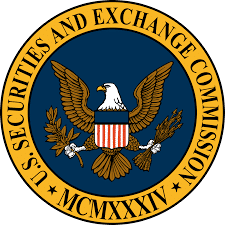The U.S. Securities and Exchange Commission (SEC) is vigorously pursuing a strategy to freeze cryptocurrency assets linked to Binance US and is seeking approval from the court. The securities regulator considers this as a necessary and urgent step to “ensure the safety of customer assets.”
SEC Files A Priority Request To Freeze Assets Held By BAM Trading Services And BAM Management US Holdings
By submitting an emergency request on Tuesday, the Securities and Exchange Commission (SEC) of the United States made a firm decision. In order to immediately freeze the assets under the control of BAM Management US Holdings and BAM Trading Services, this motion urgently asks the court to issue a temporary restraining order. These are the main organizations in charge of running Binance US, a subsidiary of the well-known cryptocurrency exchange Binance in the United States.

Furthermore, the order explicitly prohibits Binance from taking any actions that would result in the erasure, modification, or concealing of crucial records. Another ruling from the SEC states the requirement that BAM Management or Changpeng Zhao (CZ), the CEO of Binance, provide strong justifications for delaying the issuance of a preliminary injunction.
Clarification: this could only affects https://t.co/hSHrrlF7o7, IF granted by the court.
It does NOT affect https://t.co/9rMMAmc1G9. Funds are #SAFU https://t.co/Xedzc0tyuM
— CZ 🔶 BNB (@cz_binance) June 6, 2023
The United States monitoring body for the securities industry believes that the restraining order is essential for the protection of customer funds. According to the SEC filing on Tuesday, “The SEC respectfully submits that this relief is necessary on an expedited basis to ensure the safety of customer assets.” The SEC filed a lawsuit against Binance and CZ, blaming them for operating an unregistered exchange, brokerage, and clearing house, which prompted the current action.
The Tuesday news also follows the SEC’s lawsuit against San Francisco-based exchange Coinbase. In a similar line, the SEC has charged Binance with providing unregistered securities and said that it allegedly allowed Americans to use its global platform.
Read more: Coinbase vs SEC: 3 Key Takeaways From The Ongoing Lawsuit
The SEC maintained that the restraining order must be granted “given the defendants’ years of violative conduct, disregard of the laws of the United States, evasion of regulatory oversight, and open questions about various financial transfers and the custody and control of customer assets.” The Securities and Exchange Commission (SEC) contends that the court possesses the authority to hear this matter and to compel the defendants to appear and that the case ought to be heard in the district where it was initially filed.













Discussion about this post